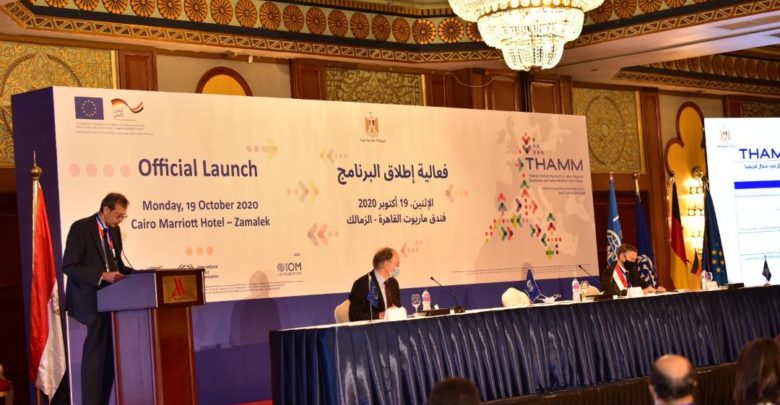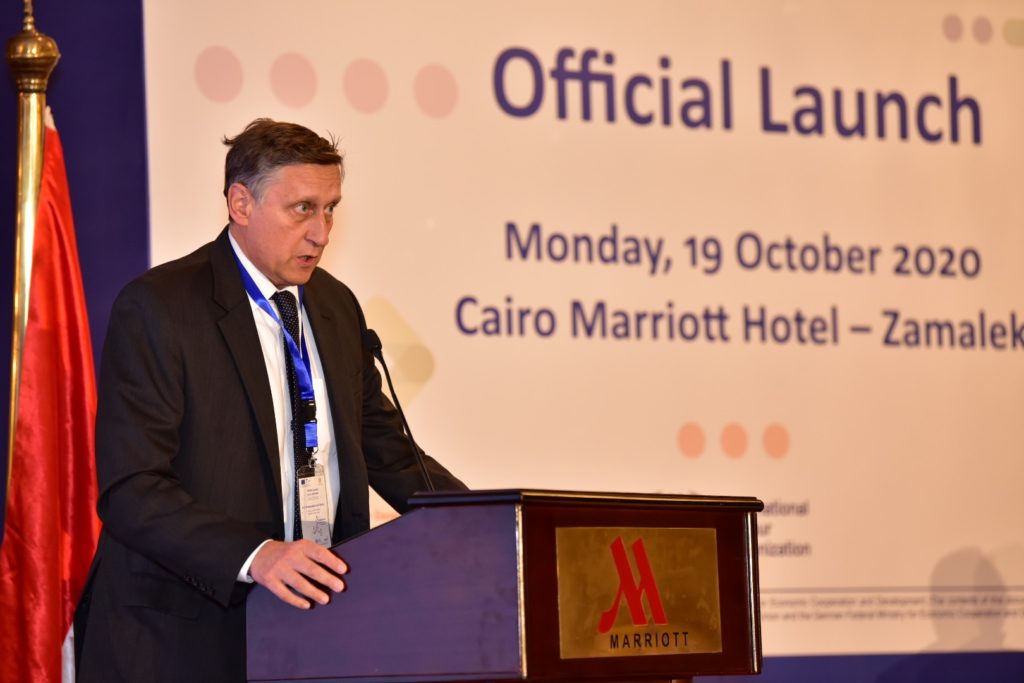
Ashraf AboArafe
The Government of Egypt, the European Union and Germany officially launched today the programme “Towards a Holistic Approach to Labour Migration Governance and Labour Mobility in North Africa” (THAMM) in Egypt in coordination with the implementing agencies: ILO, IOM and GIZ.
The THAMM programme, with a total funding of EUR 30,000,000, is in line with several jointly funded programmes by the “Emergency Trust Fund for Stability and Addressing the Root Causes of Irregular Migration and Displaced Persons” in Africa (EUTF) and the German Federal Ministry of Economic Cooperation and Development (BMZ).
High-level representatives from all relevant ministries, social partners and several EU member states attended the launch, reiterating on the significance of the THAMM programme, and its relevance to the national priorities in Egypt. THAMM draws on a holistic approach to labour migration governance and labour mobility on a regional level with a total duration of 36 months. The EU-funded THAMM programme with co-funding from Germany addresses labour migration and mobility through regional dialogues and cooperation, and pilots a mobility scheme between North African countries and selected countries in Europe.
Ambassador Ehab Fawzy, Assistant Minister for Multilateral Affairs and International Security, Egyptian Ministry of Foreign Affairs, Ambassador Christian Berger, Head of the EU Delegation in Egypt, and Ambassador Dr. Cyrill Jean Nunn, German Ambassador to Egypt delivered the opening remarks at the launch event, underscoring the importance of the pilot programme.
Following the opening remarks, the heads of the implementing agencies (Mr. Eric Oechslin-ILO, Mr. Laurent De Boeck-IOM and Dr Andreas Kuck- GIZ) led a panel discussion stressing on the importance of working together and utilizing their organizations’ existing networks and expertise to establish and strengthen sustainable labour migration routes to Europe and other destinations.
The launch follows a two-day National Programming Workshop held in September where national stakeholders validated the programme’s work plans for Egypt.




